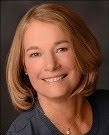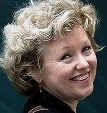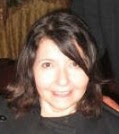by Kathi Diamant
There are myriad ways to create a meaningful life as a
writer, on a writer’s meager income, besides writing. Some of us teach. Others edit.
And still others, like me, apply for grants, fellowships and residencies, which
provide for rich and rewarding adventures, opportunities that we never dreamed of,
creating new stories to tell.
Writing grants isn’t easy, but neither is it quantum
physics. Basically, it’s a matter of following the always-provided guidelines. A few
hours research at the San Diego Foundation can yield intriguing prospects or
spark new possibilities for your own life. Did you know that there are grants
for international travel, for research in libraries and national institutions,
funds to attend conferences that will help you meet and engage with other professionals
and potential colleagues? There are. Hundreds, if not thousands, of foundations
and institutions have resources to help you write and research your story.
If you live in San
Diego , visit the San Diego Foundation at Liberty
Station, where you can find the Nonprofit Resource Center (NRC), offering research
services, publications, and workshops to the public. Free and open Monday through Friday, the NRC
offers information on grants to individuals (like you and me) with an online
database of over 6,000 funding sources in education, research, arts and
culture, and special needs. Staff is on
hand to help, and you don’t need an appointment. More information is available at www.sandiegofoundation.org
Last year, through the NRC database, I learned about a grant
opportunity I had never considered before, but thought, why not? I applied and a few months later, received an
Eastern European research residency as a Scholar at the Woodrow
Wilson International
Center in Washington , DC Wilson Center A Street
and all expenses, plus a little on the side. I was blissfully happy.
Writers have long enjoyed the creative comradery of writers colonies
and retreats. My favorite is Hedgebrook. Since 1988, the six Amish-style
individual Cottages at Hedgebrook have provided a Heaven on Earth for thousands
of women writers across the country, including, incidentally, a handful of San
Diegans. Located on Whidbey Island in Washington ’s
Puget Sound , Hedgebrook is a retreat for woman
writers, published or not, offering solitude in a extraordinarily creative
environment. And it’s all free. In exchange for room and board, Hedgebrook only
asks that each woman be the best writer she can be while she is there.
I first applied to Hedgebrook in 1992, and was accepted for a five-week-long residency the following year. Surrounded by nature, by fir and cedar, ponds and meadows, eagles and deer, I was in heaven. There was no telephone, no television, nothing to interrupt the chain reaction of my thoughts. My handcrafted little cottage opened onto a fern-filled meadow with view of
Hedgebrook’s cottages offer everything a writer could need
or want: an expansive desk, lots of light, a wood-burning stove, kitchenette,
bathroom, window seat. Upstairs, in the loft lighted by the stained-glass
windows, is a comfy bed with feather pillows and down comforter. A local chef
cooks all the meals for the six writers in residence, and dinners are served
nightly in the farmhouse by homemade-candlelight.
I’ve been back to Hedgebrook three times since, once for
another residency, and twice for week-long master classes. Now, my fingers are crossed
once again. A couple of months ago I applied for another residency to work on
my memoir. While I certainly can write,
sitting here, as I usually do, at my computer, Hedgebrook offers me a break
from usual, to a land of dreams and chance. I should hear in the next week or
so. In the meanwhile, you might want to check out Hedgebrook for yourself: www.hedgebrook.org.
Why not?
****
Kathi Diamant is the
award-winning author of Kafka’s Last Love and an adjunct professor at SDSU, where she directs the Kafka Project,
the official search for Franz Kafka’s lost literary treasure. Kathi has
lectured internationally, and taught classes on writing, acting and on literary
genius Franz Kafka. Earlier this year, she received a month-long residency at
the Woodrow Wilson
International Center
for Scholars in Washington ,
DC













0 comments:
Post a Comment